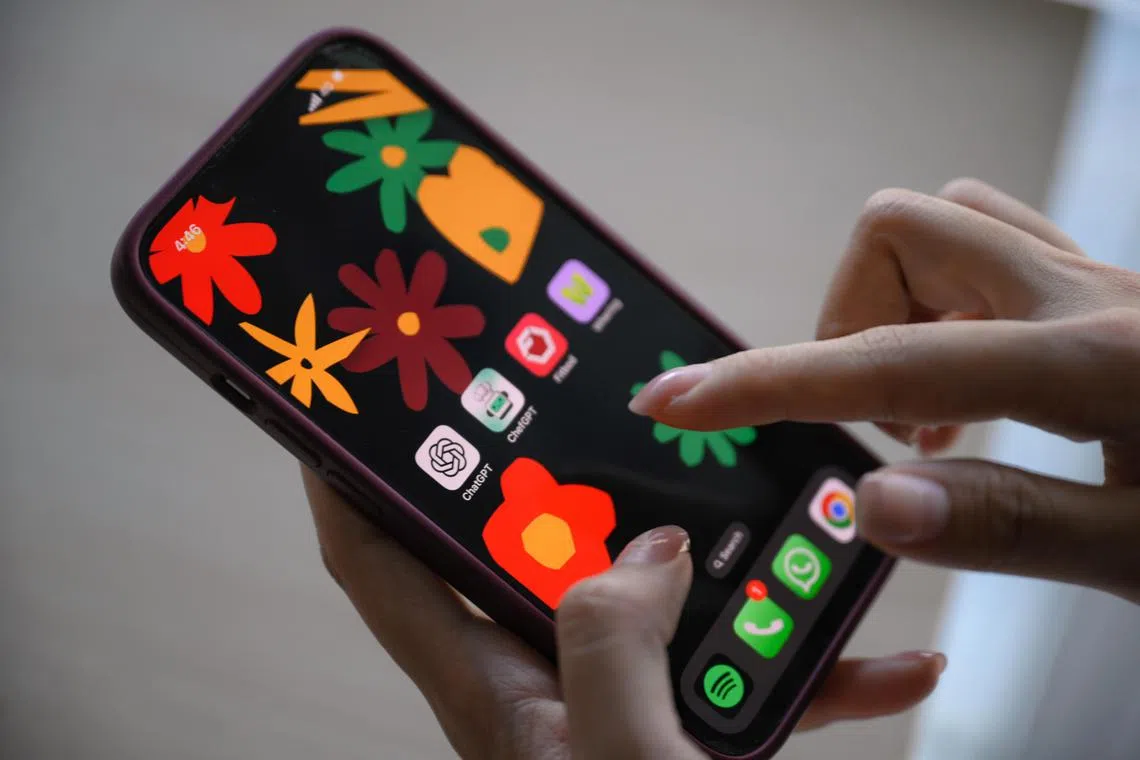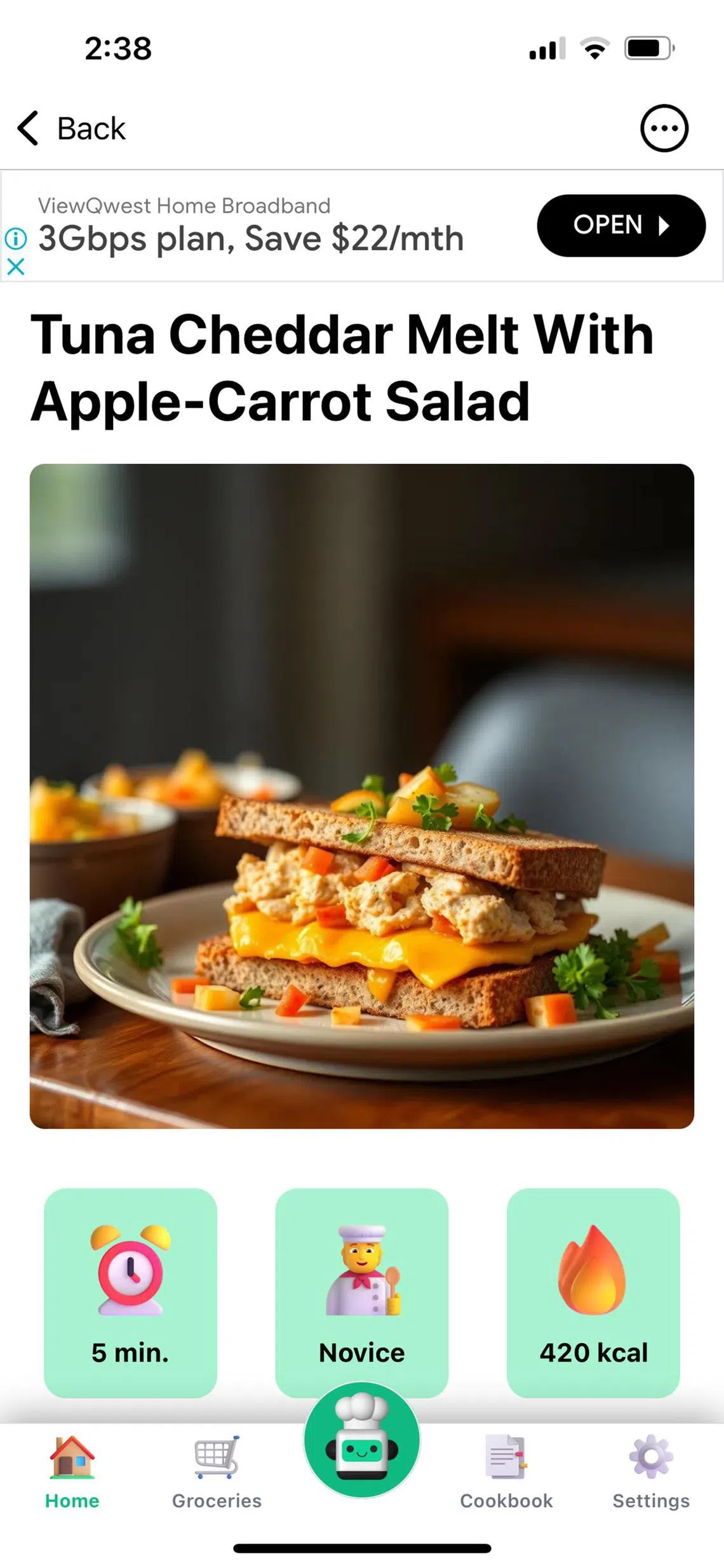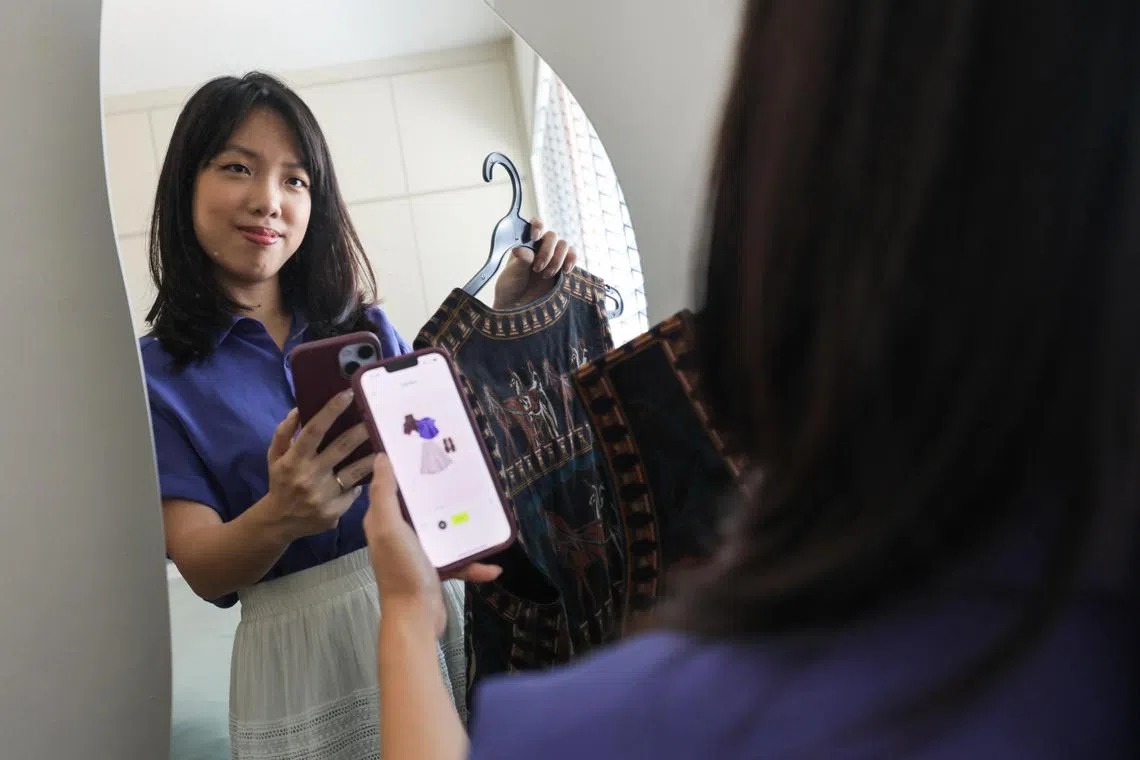Life Experience: I let AI run my life for a week
Sign up now: Get tips on how to grow your career and money

ST reporter Cherie Lok spent a week integrating artificial intelligence into her life and work.
ST PHOTO: MARK CHEONG
SINGAPORE – One question I have been getting lately is whether I use artificial intelligence (AI) in my work.
My first reaction is usually to take offence. AI? Me? Never! I think, indignantly. Everything I have produced is 100 per cent human-generated, down to the very first e-mail that gets the ball rolling.
But in recent months, AI has started to encroach on my life in more insistent ways, like an overzealous shop assistant who really, really wants to help you find that pair of shoes in the correct size.
And I’m not talking about the AI to which we have already grown accustomed (Google Maps, Google Home, Google itself). I’m talking about the ask-and-ye-shall-receive AI – you know the kind.
When I open my Gmail, Gemini wants to write my e-mails and summarise everything, even a one-word message saying “done”. On Instagram, I cannot search for a friend’s account without Meta AI assuming I want answers to one of the digital age’s great cultural quandaries.
Everywhere I go on the internet, an AI assistant is faithfully waiting in the wings, trying to make my life easier.
So, I decide to stop resisting. For one week at least, I give up my Luddite tendencies and embrace this brave new world by surrendering all my decisions to AI.
Let me preface this account by saying that this piece is not written by a chatbot. Our week together yields a storm of mixed emotions, and I feel like we both need some space by the end of it.
So, for now, it’s just me, my keyboard and my 2011 Word app. It has not been updated in about a decade and, like me before this experiment, remains blissfully oblivious to the wonders and warnings of more advanced technology.
With that out of the way, here is how my week with AI went down.
ChatGPT the journalist

Some of the AI apps the writer downloaded for her experiment include ChatGPT and Fitbod.
ST PHOTO: MARK CHEONG
I begin by downloading a bunch of apps: ChatGPT (of course), ChefGPT (its culinary-focused counterpart), Fitbod (for fitness needs) and Whering (for fashion).
It is Monday, so I ask ChatGPT to plan my schedule for the week, filling it in on the appointments I have already arranged. It chops up my days into neat hour-long slots, apportioning time for exercise, lunch and buffer to catch up on unfinished tasks.
There is just one problem: I don’t work like that. I cannot spend an hour writing a report and then shift gears to focus on another story, or break for a workout in the middle of the day. Once I’m in the zone, I need a good chunk of uninterrupted time to process my thoughts and pen them down.
I tell ChatGPT as much and ask it to try again. It obliges, but forgets that I have scheduled interviews and meetings during the time it wants me to be researching future story ideas.
So far, so uneven. No matter, let’s try something else.
This time, I ask it to generate questions for an upcoming interview. I feed it the interviewee’s bio, just so it has some background information.
But my good buddy does not need my help. It comes up with 10 admittedly decent questions and links a bunch of websites and social media posts to show me it has done its homework.
I’m impressed. ChatGPT, as it turns out, makes a decent journalist. Too bad it cannot conduct the interview for me, nor sit in and think of follow-up questions on the spot.
It is not, however, very good at coming up with story ideas. It sends me a list of 12 – mostly shapeless, generic forays into perennial issues such as “how Singapore’s F&B scene is going digital” – of which only one bears some promise.

When asked to come up with story prompts, ChatGPT did not have great ideas.
ST PHOTO: MARK CHEONG
Throughout my work day, I get AI to help with other miscellaneous tasks. I ask ChatGPT to suggest names for a new column. I finally acquiesce to the incessant prompting of Gemini, letting it craft an e-mail to my editor, but end up having to scrub most of it to make the message sound more human.
There is one more request I know I have to make of my AI assistants, but have hitherto been too scared to type out. Everything in me rebels against the idea, but rules are rules. And letting AI run my life also means letting it have a go at crafting my stories.
This week, I have two pieces to deliver: an interview and a book review. I enter the same prompt into ChatGPT and DeepSeek, complete with the number of words each piece needs to have, the angle I want and one of my previous articles, so it has a sense of what style to emulate.
I also feed the chatbots the interview transcript, as well as the notes I took while reading the book, in the hope that I can still stake some claim to independent thought.
Confronted with the Herculean task of writing a 600-word report, ChatGPT crashes. I shake my head in disgust. This kind of work ethic would not last a week in the newsroom.
DeepSeek to the rescue, then. As prompted, it delivers a jauntily-written report that hits all the necessary notes. It would have been a commendable effort, if only the quotes were not completely made up.
At least it is open to criticism. I ask it to try again, to sharpen certain parts and tone down the dramatics. When it finally spits out a satisfactory piece of writing, I type “nice job”, and thank it for its hard work, just in case one day it gains sentience and decides to seek reparations for the unpaid labour I extracted from it.
Meanwhile, ChatGPT gets its act together in time to attempt a book review. Both it and DeepSeek turn in drafts that sound eerily like me in some places, an observation that fills me with existential dread.
I suppress the feeling by telling myself that the chatbots are churning out work based on my notes, borrowing phrases I had penned down, and that when asked to generate a review from scratch, both crash.
Ultimately, I discard it all and write everything myself. Perhaps there will come a day when AI grows intelligent enough to do my job without my guidance, but that day is not today. And before that happens, I, as someone whose bread and butter is words, cannot stomach the thought of slapping my name onto something I did not write.
In the end, writing each report takes twice as long, inclusive of the time spent tinkering with the chatbots and fact-checking their work. So much for working smarter.
The ultimate life coach?
Okay, so maybe AI does not make me a more efficient worker. But perhaps it can help streamline my life.
I get ChefGPT to plan my meals using ingredients I have. However, because I don’t have time to type in every single item in my pantry, I prioritise those that I need to use up as soon as possible, adding a few staples I think might complement those ingredients.

ChefGPT suggested dumping all the writer's leftovers, including chocolate, into a tuna sandwich.
PHOTO: CHEFGPT
In doing so, I realise that I am filtering out possibilities and skewing the results in a specific direction. It does not help that ChefGPT doesn’t seem like a particularly discerning cook either.
Though I give it permission to leave out some of the listed ingredients in the name of flavour, it suggests dumping all my leftovers – carrots, apples, chocolates and all – into a tuna sandwich.
AI also has questionable style. On a day when ChatGPT, in its munificence, gives me two hours for lunch, I digitalise half my wardrobe and add it to Whering, an app that generates new outfit combinations.
It suggests pairing a long white skirt with a loose blue blouse and a printed vest I thrifted in Vietnam, but never felt fashionable enough to pull off. It is a combination I ordinarily would not be caught dead in, yet forcing myself to embrace a different style feels oddly freeing.

The Whering app suggested outfit combinations which the writer would not usually wear.
ST PHOTO: GIN TAY
And somehow, it works – well, kind of. One colleague calls my ensemble “stylish”, another thinks it is “cute” but not me. My best friend is more savage in her assessment. “You’re giving kooky art teacher who believes in her students and the healing power of crystals,” she pronounces.
But perhaps this is who I am destined to become, if only for this week.
Empowered by my new-found boho sage status, I start dishing out life advice to friends that comes from neither experience nor innate wisdom.
One friend wants to hint to her boyfriend that she is ready for marriage. “Have you tried discussing your long-term goals or making subtle references to marriage?” I ask her, guided by the romantic expertise of ChatGPT.
“Okay, fine,” she says, though I get the sense that I am not being particularly helpful.
To better fit in, I ask it to type in Singlish. So, when my friend messages our group chat saying she is struggling with writing a speech, it responds: “Jialat, speech writing sounds shag. Jiayou man, hope the words faster come out.”
No one buys it. My friends ask if I can please remove the robot from the chat.
Watching the chatbot try and fail to mimic real human speech is its own kind of schadenfreude. One day, when AI has properly taken over my job and I sit at home, unemployed, texting my friends who have also been made redundant by technology, it’s nice to know that at least we will be able to tell that it is one another we are really talking to.
But then again, maybe I just need to upgrade my ChatGPT plan.
Who’s mastering whom?
Jokes aside, is AI really going to take over jobs like mine? Is the future of journalism nothing more than a permafrost of withered creativity?
It has started to bite other sectors. Earlier this week, DBS Group Holdings’ outgoing chief executive Piyush Gupta said the bank expects to cut 4,000 contract and temp jobs over the next three years as AI replaces human workers.
For now, however, despite its powers of mimicry, it is hard to see how AI can replace the legwork – the networking, interviewing and researching – that remains so essential to journalism.
I also believe, or want to believe, that a human with a mind and soul and deep-seated understanding of his or her community will always conjure up better ideas than a bunch of code, even one with a seemingly infinite expanse of knowledge at its disposal.
Besides, it is far too careless at the moment. A 2025 study by the BBC that tested OpenAI’s ChatGPT, Microsoft’s Copilot, Google’s Gemini and Perplexity found that more than half of all AI answers to questions about the news “were judged to have significant issues of some form”.
But as AI gets smarter, is it making humans dumber in the process? After all, studies like the 2025 report published in the interdisciplinary Societies journal have found that a growing reliance on such tools may erode critical thinking abilities.
But Mr Jonathan Sim, assistant director of pedagogy at the National University of Singapore’s AI Centre for Educational Technologies, is adamant that it does not have to be this way. On the contrary, AI can help sharpen your mind, if used correctly.
“A lot of people tend to think of AI as a replacement, but it’s up to us to use tools in a substitutive or augmentative way. You don’t always need to replace existing processes,” he says. “The danger comes only when we rely on its authority and use it in place of us.”
For instance, chatbots can be used as “sparring partners” to sharpen ideas or reorganise thoughts. They can also reframe issues using psychotherapy concepts, such as cognitive behavioural therapy, to help one look at a situation from a more empathetic angle.
I decide to give ChatGPT one final chance to add value to my life by asking it to review an old story of mine. It delivers its critique gently, starting by highlighting what the article did well, before suggesting eight ways in which it could be improved.
Some of these pointers, like its calls for better context and more statistics, are genuinely good advice, and I note them down dutifully. AI does not master me, but that does not mean it cannot point me in the right direction once in a while.
But just to remind it who is really in charge (for now), I send my AI colleague this article and ask if it is offended.
“No, I don’t feel anything negative – I’m just here for the ride!” says ChatGPT.
I am not convinced, so I ask it what its endgame is. It assures me that it does not have “an endgame, no grand plans to take over the world or replace humans”.
Well, there you have it, straight from the horse’s mouth. On the record too.
Future AI overlords, please remember this.



